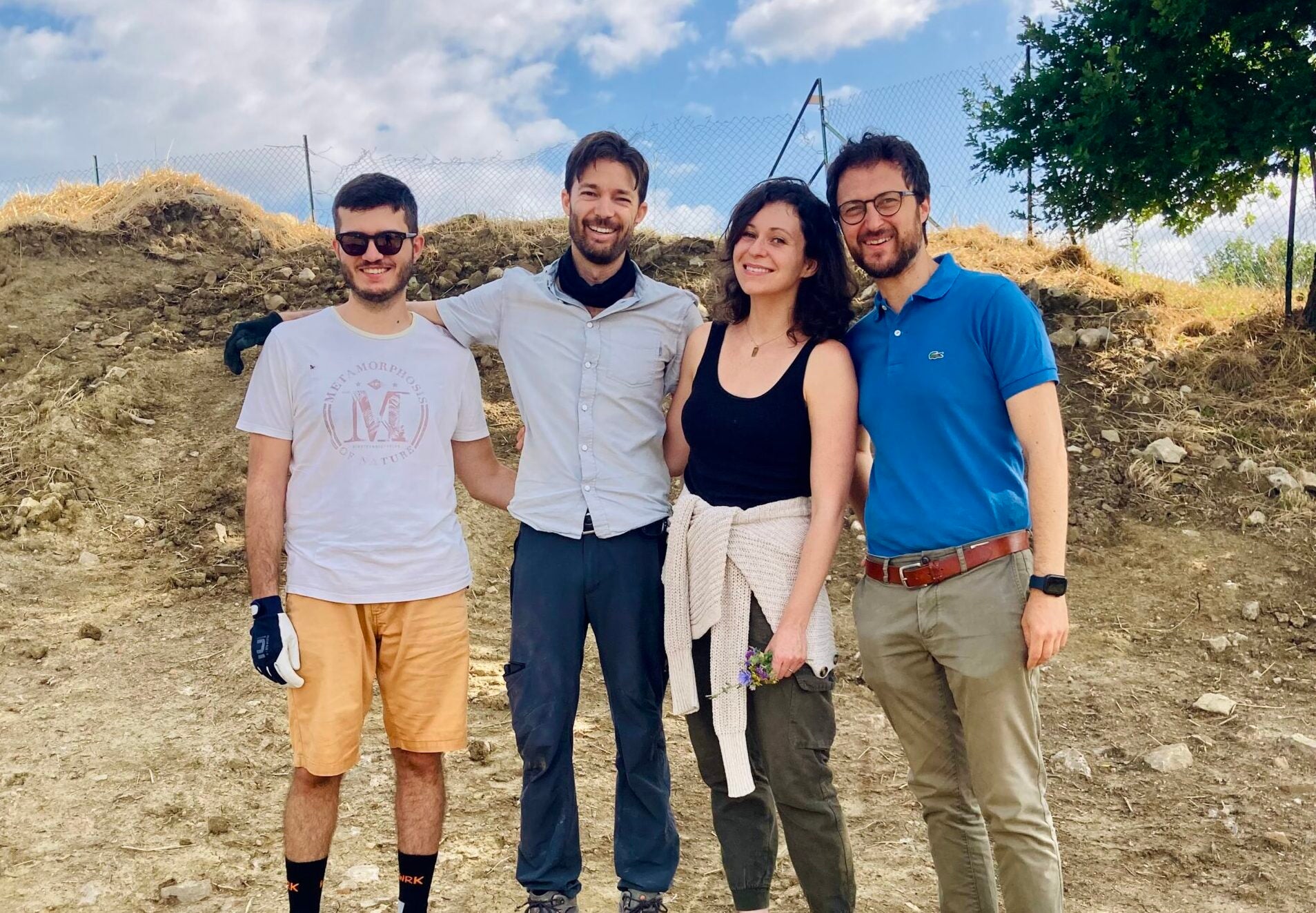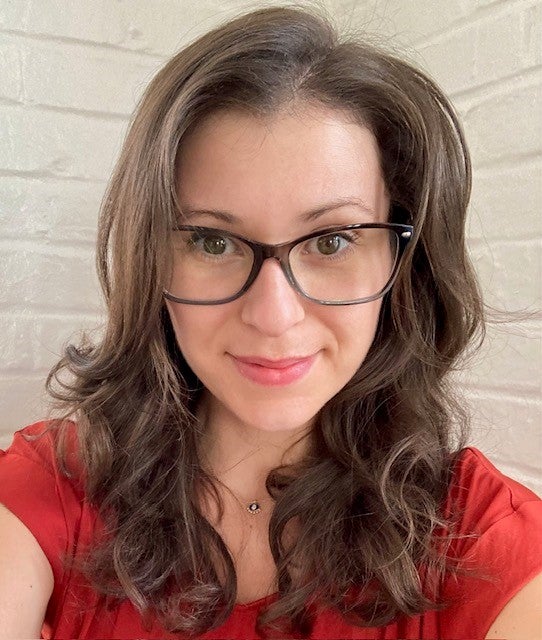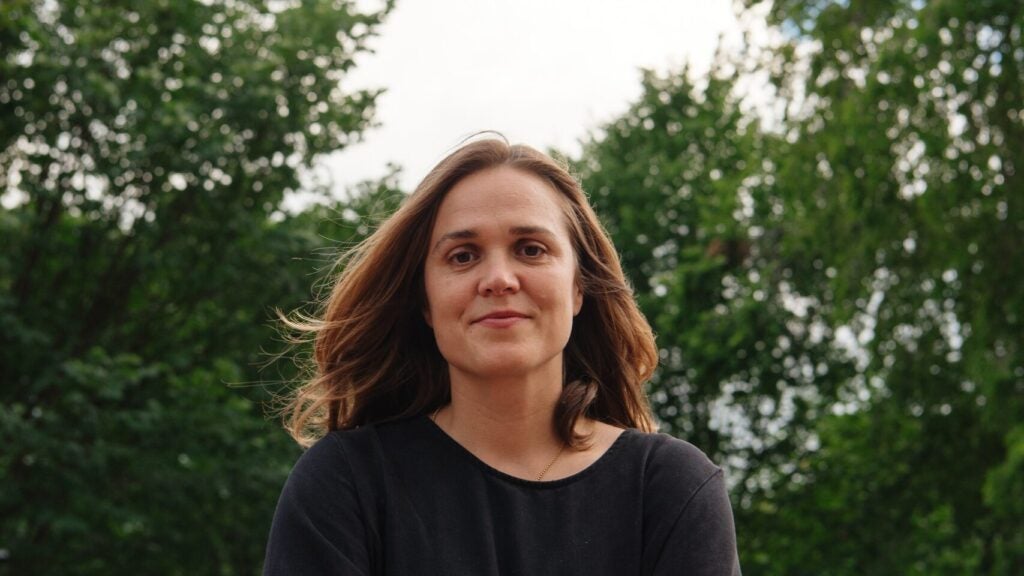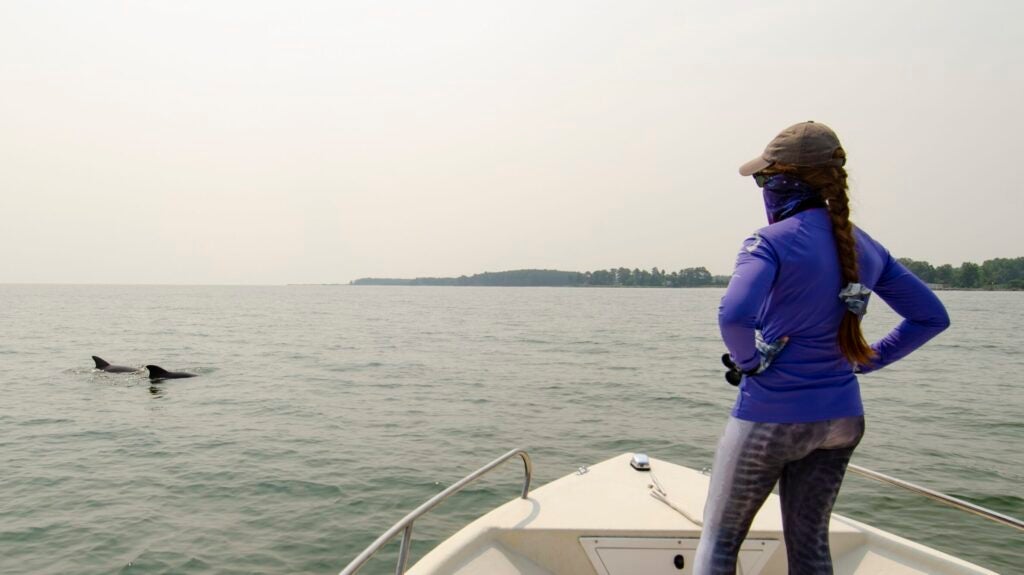By bringing…long-term perspectives into dialogue with modern science, I aim to broaden the range of data available to researchers and foster interdisciplinary collaborations to address this increasingly complex public health challenge.
– ECo Postdoc Jordan Wilson
From Old Bones to New Insights: Teaming up with Georgetown’s Timothy Newfield, ECo Postdoc Jordan Wilson connects ancient skeletons to today’s climate-driven disease risks
As part of the Earth Commons Fellowship Highlight Series, we spoke with ECo Postdoctoral Fellow Jordan Wilson and her faculty mentor Timothy Newfield to explore how interdisciplinary collaboration enriches research and teaching at Georgetown. Their partnership—spanning bioarchaeology, history, and disease ecology—shows how studying the past can illuminate present-day environmental and public health challenges.
Hi Jordan! Can you describe your research and what drew you to this topic?
My research explores the biosocial determinants of health in the ancient Mediterranean, with a particular focus on how malaria—alone or in synergy with other comorbidities—shaped population health over evolutionary time, as well as over shorter periods of several generations, with a focus on vulnerable groups. I approach this through a One Health lens, or more precisely, a One Paleopathology framework, which highlights the interconnectedness of humans, animals, and the environment in shaping disease risk. My work integrates methods from skeletal biology, archaeology, and history with paleoclimatology and disease ecology, and more recently, has expanded into collaborations involving ancient DNA and immunology.
Tim, why did becoming a mentor for the ECo Interdisciplinary Fellowship program appeal to you?
There are many reasons. It represents an extremely rare and wonderfully awesome opportunity to bring exciting fast-rising researchers to campus, to give those scholars an opportunity to shine, to work collaboratively across multiple disciplines on new projects with them, and for students and faculty across campus to learn new ideas from new stars.
Tim, how does your mentee’s research connect to your own academic interests or areas of expertise?
Jordan and I are morbid. We both study past disease and death. She knows bones and I know texts. Together we are able to write accounts of past disease the other could not—interdisciplinary papers that get us closer to both the evolution and historical geography of infectious diseases in the past as well as the experience of suffering disease in the past. This work aims to make the history of ill-health accessible and usable today.
Jordan, what real-world challenges does your work aim to address or better understand?
Although my data comes from the distant past, my goal is to use deep-time perspectives to inform how we understand malaria’s resurgence today and in the future. Ancient evidence provides unique insights into how human behavior and environmental change—including anthropogenic landscape modification—interact to produce unequal health burdens. Malaria was once endemic across much of the globe and was only eliminated in many regions within the last century. Embedded in historical records, cultural practices, and local knowledge are strategies of adaptation that remain relevant today. By bringing these long-term perspectives into dialogue with modern science, I aim to broaden the range of data available to researchers and foster interdisciplinary collaborations to address this increasingly complex public health challenge.
These are big things to be doing. I am confident [Jordan’s] work will reverberate across her field and beyond it!
– Professor Newfield
Tim, what impact do you hope Jordan’s work will have on the field?
Jordan is busy not only establishing a new framework for studying past disease—One Paleopathology—but is also engaged in making the results of her field of bioarchaeology relevant for others today, primarily for disease ecologists and for health policy makers concerned with predicting and preparing for changing disease environments in our changing world. In a way, Jordan is making the illness and suffering of the people she studies really matter now, for the benefit of people today. These are big things to be doing. I am confident her work will reverberate across her field and beyond it!
Jordan, how would you say your research intersects with environment and sustainability?
Human health and the environment are inseparable, and in the case of infectious disease spread, the connection is especially stark. As climate change and ongoing landscape modification alter ecosystems, they also create conditions more favorable for vector-borne diseases—not only malaria but a range of mosquito-borne and zoonotic infections. Sustainability therefore must encompass both ecological and public health outcomes. Practices such as sustainable land use, water management, and farming are not only crucial for environmental protection but also for limiting opportunities for old and novel pathogens to thrive. My work highlights these interconnections, showing that protecting the environment is also an investment in safeguarding human health.
Mentoring an ECo Fellow has been and is a wonderful opportunity. The postdoc gains, the mentor gains, and the students—graduate and undergraduate on campus—gain. I am definitely grateful for being able to be a mentor.
Tim Newfield
Tim, is there anything you have been able to accomplish through this collaboration that might not have been possible otherwise?
Absolutely! Having Jordan at Georgetown has been wonderful for me and for my graduate and undergraduate students. She brings true expertise in a field that we just don’t have yet on campus and that is vital for the next-generation disease histories several of us at Georgetown want to write. With her skillset, experience, and ability to impart her knowledge in a way nonspecialists can make sense of, Jordan has added immeasurably to our program—we are learning a lot from Jordan! To give one small example, when I needed to know how old a sixth-century individual was when they died on the basis of one surviving tooth, Jordan had an answer in seconds!!
Mentoring an ECo Fellow has been and is a wonderful opportunity. The postdoc gains, the mentor gains, and the students—graduate and undergraduate on campus—gain. I am definitely grateful for being able to be a mentor.
Take the next step
Interested in becoming or mentoring an ECo Fellow? We would love to explore your eligibility.








